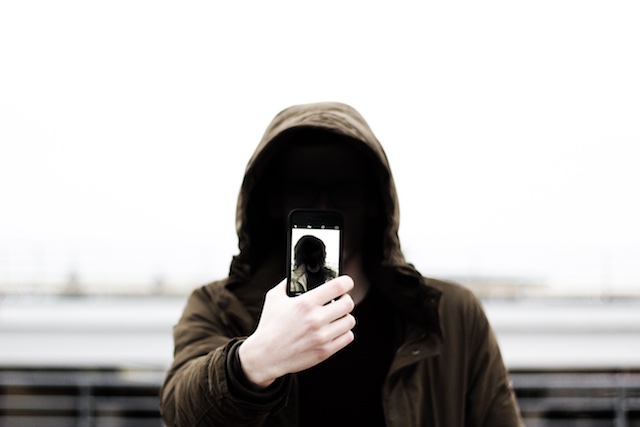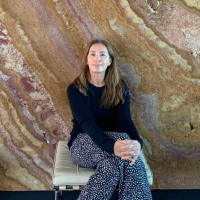
“This is an extraordinary time full of vital, transformative movements that could not be foreseen. It’s also a nightmarish time. Full engagement requires the ability to perceive both.” ~ Rebecca Solnit, Electrifying Manifesto for Civilizational Resilience.
Between fake news and fake selfies, everyone loves to hate Facebook.
So much of what is wrong with our lives today is blamed on social media. From the surprising voter outcomes to the impending death of true journalism, to the breakdown of our physical relationships, Facebook seems to be the culprit for it all.
The concerns are real, but I cannot help but observe the ever-increasing hysteria in our discourse, driven by self-righteousness, fear, and victim mindedness.
Whenever I sense fear as the driving force behind any information I receive, my inner alarm bells go off and I feel the need to revolt and refute.
You see, I was born on the inside of the Iron Curtain.
I grew up under the locked-in nationalism of a communist authoritarian regime. Information came from a tightly controlled source via one censored channel and delivered in pre-packaged sound bites of propaganda.
The world was black-and-white and not confusing. The bad guys were identified and clearly marked. Curiosity was discouraged and fear was instilled in us to control our behavior and thoughts. There were many walls and barriers, both physical and psychological.
“Two billion people use Facebook—that is a mighty scary number in and of itself,” starts one of the more recent articles I’ve read about Facebook.
But when I hear that two billion people across the world are connected, it thrills me more than it scares me. Two billion people are connected beyond geographical barriers and across time zones. They are united beyond distinctions of color, ethnicity, language, culture, political regimes, religion, or sexual preferences.
Two billion people are connected and able to share information. They influence each other in ways never seen before. This fills me with joy.
I’ll admit, I was slow to embrace social media. Even as my own children became “users” of this reportedly dangerous new “drug,” I still wasn’t ready to take the plunge. Even when my friends got with the program, attempting to understand the world of our children and (mostly) to spy on them, I still resisted.
It wasn’t until four years ago when my geographically-restricted world of physical relationships became too small, homogenous, and stifling that I took my first hesitant steps into the scary and dangerous world of social media. That single decision has altered the course of my life.
I discovered a brave new world, unrestricted by man-made demarcation lines, where communities formed through common interests, values, and sensibilities.
Whether it’s learning to meditate, supporting each other through shared trauma, or exchanging tips on how to live with zero-waste, we interact with like-minded people from all over the world. Our colors, accents, and family stories may differ, but Facebook unites us through similarity of our human experiences.
Social media is often cited as the reason for disconnect in our real-life relationships through the illusion of increased connection. Our children’s addiction to it is an endless topic, as we worry that the time they now spend on social media should be spent cultivating real-life connections.
My own experiences online have enriched my personal life in ways I could not have predicted.
Not only have I found my non-geographic tribe, but these people, most of whom I have never met in person, have nourished me, supported me, and empowered me like few of my “real” relationships have.
The benefits of my online interactions have trickled into my “real” life, enriching my relationships with people whom I share my physical life with. As I become more empowered and compassionate, I become less of a victim and more accepting in my physical relationships as well.
Being aware of the negative impact of social media is important—especially as it concerns our children who do not yet have the depth of a life experience—but as I observe my own life thrive from access to social media, I am starting to appreciate the multidimensionality of my children’s experience online.
One of my teenage daughters was relentlessly bullied in school for years. She finds support in her online community of friends she met during her summer activities over the years. I am grateful that her world extends beyond the toxic experience of her school and that she has kind and generous people in her life, even if they don’t see each other frequently.
It’s easy to blame outside influences for the breakdown of our relationships—that it takes the pressure off and frees us from being accountable. I used to be part of that thought process. However, my own experience has changed my rhetoric.
Life of freedom requires presence, discernment, and responsibility.
We are responsible for our relationships, as well as for our news sources. It is up to us to do the research and become savvy consumers. Believe me, it is so much better to have the choices. And, yes, we must do the homework required to make an educated selection from the multitude of sources. This is what I’ve learned many years ago on my first excursion to the supermarket when I landed in New York as a teen fresh out of the Soviet Union.
When we stop blaming governments, partners, and social media for whatever is wrong with us, we realize that we have choices in how we want to engage with our lives—and with that comes power.
Do not expect me to join the already loud rant on the dangers of the world we live in. In fact, I feel quite optimistic about it.
I have not lost hope because social media allows us to observe that, despite the diverse cultures our civilization contains, there is an essential similarity of values among us. I feel that this could be made into a genuinely unifying starting point for a new code of human co-existence.
Since I have embraced social media, I have come to feel that it’s a force for good.
As I connect with people who inspire me, as I learn from their brave and heartbreaking stories, I realize that my story matters, too. I have unlocked the voice that I have suppressed since childhood due to man-made borders and cultural particularities.
Not only have I found my voice, I found groups and courses that taught me the skills to develop it into a loud and clear one.
Today, thanks to social media and together with millions of others, I have an opportunity to broadcast my own messages at zero cost to me and completely free of charge to anyone who may find it of benefit. Through posts on social media and my digital column on Elephant Journal, I am starting to impact the lives of others. As I free myself from the shackles of my upbringing, the dogmatic notions taught in schools and the stories about my role as a woman, I can help my readers and coaching clients do the same.
But freedom requires discernment and vigilance. Out of many sources of information out there today, each one of us has to decide which is right for us. Facebook is just a platform and it is run as a business. There is no one to blame. Today we have access to information about everything. We have all the tools to make educated choices. We must stop waiting to be spoon fed, giving our power away to the one providing the nourishment, and then blaming them for giving us the wrong food. We must be the choosers of the ingredients that are right for us.
Social media is our mirror; it reflects back our issues. It can be a place for fakeness as well as for sincerity. It is up to us how we choose to express ourselves. What do we want to put out there: fake veneer of perfection to entice jealousy in others, or the truth about our condition, which would then invite others to share their truth?
Whether we are for or against it, social media is here to stay. So let us be grateful for the freedoms we enjoy, arm ourselves with knowledge of how things work, and act from the position of informed empowered beings, not victims of some uncontrollable “Big Brother.”
“Only a dreamer can believe that the solution lies in curtailing the progress of civilization in some way or other. The main task in the coming era is something else: a radical renewal of our sense of responsibility. Our conscience must catch up to our reason, otherwise we are lost.” ~ Vaclav Havel, Art of the Impossible.
Author: Galina Singer
Image: Tom Sodoge/Unsplash
Editor: Danielle Beutell
Copy Editor: Catherine Monkman
Social Editor: Catherine Monkman











Read 2 comments and reply